This post was originally submitted as AWARE’s feedback to a government consultation described on the REACH website. For the original document with citations included, please click here.
 Women are disproportionately likely to be vulnerable adults. In 2009, women formed 71% of the population of older adults diagnosed with cognitive impairment. Women are also more likely to face limitations in performing their daily activities. These facts, combined with the gendered nature of ageing (women live, on average, five years longer than men), make the Vulnerable Adults Bill of keen interest to AWARE.
Women are disproportionately likely to be vulnerable adults. In 2009, women formed 71% of the population of older adults diagnosed with cognitive impairment. Women are also more likely to face limitations in performing their daily activities. These facts, combined with the gendered nature of ageing (women live, on average, five years longer than men), make the Vulnerable Adults Bill of keen interest to AWARE.
Overall, we welcome the introduction of this comprehensive and detailed legal framework to grant the state powers to protect vulnerable adults from abuse and neglect. We find it very helpful that there are key principles laid out in Clause 4 of the draft Bill, to govern and limit the exercise of those powers, and agree with the content of those principles (though we suggest one addition below).
We also note that in the process of drafting this Bill, the Ministry for Social and Family Development has carried out several rounds of consultation and discussed the use of the feedback received with the public – an approach that we applaud and urge the government to use more consistently across all Ministries and policy areas.
However, intervention in individual cases cannot be the primary solution to care- and welfare-related difficulties experienced by vulnerable adults. Such intervention cannot substitute for broader state investment in infrastructure and facilities for long-term care, including home care. As we have consistently recommended, the ageing population urgently necessitates this investment.
Below we offer comments which principally address two key points:
a) We offer suggestions as to the scope of the Bill, to ensure that it is sensitive to a wider range of forms of abuse and omissions of care.
b) We recommend strengthening the mechanisms for oversight of the use of powers under the Bill. Specifically, any exercise of powers without the consent of the vulnerable adult or potentially involving serious disruptions to the privacy and liberty of any individual should always involve a process of formal oversight by a second body. This could take the form of (i) requirements of formal reporting to and/or prior approval from an independent body (we suggest the Review Board), or (ii) applications for court orders. Additional oversight can better ensure that all use of powers under the Bill is in conformity with the Clause 4 principles, especially 4(1)(a)(d).
Principles and scope of the Bill
Principles:
a) We support the Principles of the Bill set out in Clauses 4. In our view, it is vital that powers granted under this Bill are exercised in a way that minimises interference with the vulnerable adult’s rights and freedom. This is both to respect the dignity of the individual as well as to recognise that in general, community support rather than legal intervention will tend to better serve their needs.
b) To further strengthen the Principles, we recommend the insertion of the statement “the welfare and best interests of the vulnerable adult shall be the first and paramount consideration” into Clause 4 of the Bill. This would bring the Bill into alignment with Section 3A of the Children and Young Persons Act, where one of the Principles is that “the welfare and best interests of the child or young person shall be the first and paramount consideration” in all matters of application of the Act. The “best interests” of the vulnerable adult is mentioned in several sections, (e.g. Clause 7(2A), Clause 11(3), Clause 11(7)), but we believe that it should have the status of an overarching Principle as well.
2. Definition of “vulnerable adult”: We recommend that subparagraph (a) of the definition of “vulnerable adult” in Clause 2 should be amended to read “is 16 years of age or older”. At the moment, the Children and Young Persons Act protects people who are under 16 years of age, while this Bill as drafted covers those aged 18 years and above. Our change would close the gap of protection for those between 16 to 18 years of ages.
3. Definition of “neglect” and “self-neglect”:
a) The omission of care (neglect and self-neglect) can be harder to detect than the commission of abuse. The Bill defines ‘self-neglect’ as the failure of the individual to perform essential tasks of daily living and ‘neglect’ as the lack of provision of essential care to the vulnerable adult. Do the essential tasks of daily living refer only to Activities of Daily Living (ADLs)? In our view, this may be insufficient, as ADLs understate an individual’s level of needs. We recommend that Instrumental Activities of Daily Living (IADLs) be included as a tool of assessment as it is more precise in detecting the omission of care. IADLs are activities that allow individuals to live independently in a community e.g. taking medications as prescribed, preparing meals and managing finances.
b) Adults have a right to choose their own living environment, even (up to a level) unsanitary ones. The Bill should respect a vulnerable adult’s membership in a community and choice of living situation. Intervention should be proportionate and targeted to the specific form of self-neglect that is identified, without an excessively disruptive response.
In cases of hoarding, the FAQ states that MSF ‘may apply for a court order for the home to be made safe’. However, such one-off actions of making a home safe do little to address the psychological reasons behind hoarding behaviour. There should be follow-up action in place to see that the hoarder receives the necessary and appropriate medical support.
4. Definition of “abuse”: We recommend that financial abuse be included in this definition. MSF’s publications recognise financial abuse as a form of elder abuse. Examples include deceiving or coercing the elderly parent to sign a will or deed, or regularly taking money from the elderly parent without providing support in return. Financial abuse is often accompanied by threats of physical violence, and compounds the vulnerability of a victim to further abuse and neglect. As this can be just as devastating as other forms of abuse and neglect, we believe it should thus be covered under this Bill.
Restraints and oversight for use of powers
- Consent: Several powers under this Bill can be exercised without the consent of the vulnerable adult where they lack the mental capacity to consent (e.g. Clauses 6(1)(d)(ii), 10(1)(d)(ii), 16(6), 17(5)(b)). In such cases, where the vulnerable adult has applied for a Lasting Power of Attorney (LPA), consent should be sought from their donee(s) unless the donee(s) are themselves the abuser of the vulnerable adult (in which case their status as donee should be revoked).
- Role of court and Review Board: Extensive discretion is granted to the Director and protectors under this Bill. While the protection of vulnerable adults may require measures that can be disruptive to them and others associated with them, this carries the possibility that some state actions may be excessive – an outcome which the Clause 4 principles rightly seek to avoid.Relatedly, the wide discretion granted to the Director and protectors may lead to concern and uncertainty among caregivers for vulnerable adults. They may worry pre-emptively about the possibility of entry into their premises or other state actions that could disrupt their lives, and thus become reluctant to house and care for vulnerable adults. AWARE has encountered cases in an analogous context, where the relationship between older parents and children are harmed by state intervention, for instance due to court orders for maintenance. Having sturdier formal mechanisms to limit and review the Director’s exercise of discretion may help to reassure the public that state powers will be used with strong regard to restraint and proportionality, and thus counter negative perceptions.We thus welcome the fact that some powers (e.g. under Clause 10) are subject to the requirement to seek a court order. However, in our view, oversight mechanisms should be strengthened. In particular, any exercise of powers without the consent of the vulnerable adult or potentially involving serious disruptions to the privacy and liberty of any individual should always involve a process of formal oversight by a second body. This could take the form of (i) formal reporting to and/or prior approval from another independent body; or (ii) applications for court orders.The independent body referred to above could be the Review Board described in Clause 19. It would need to be given the specific mandate to require powers under the Bill to be exercised in conformity with Clause 4, and a whistle-blowing function analogous to the Public Guardian which addresses complaints relating to the Mental Capacity Act.More specific discussion of provisions that would benefit from increased safeguards is set out below.
- Specific recommendations for safeguards: We have set out recommendations below for the inclusion of requirements for a) court orders, b) Review Board approvals or c) Review Board reporting. Even if recommendations for court orders or prior approvals are not accepted on operational grounds, we strongly recommend that all use of these powers should be subject to reporting and justification to the Review Board.a) In addition to existing safeguards in the Bill, court orders should be required in the following cases. We have identified these as the most intrusive powers because they involve the removal of vulnerable adults without their consent and/or intrusion into homes of individuals.i) Clause 6(1)(d)(ii) and Clause 6(4) – removal of an individual lacking mental capacity for assessment without their consent, and the use of force for this removal.ii) Clause 8 – power to enter premises.
iii) Clause 11(1)(b)(ii) – Notwithstanding the inclusion of the words “voluntarily submits”, the initial exercise of the Clause 10 power to remove a vulnerable adult represents a very significant change in the vulnerable adult’s circumstances and should not be possible without review and confirmation by court order. We thus question the inclusion of Clause 11(1)(b)(ii) in the Bill.
b) In addition to existing safeguards in the Bill, prior approval from the Review Board on the use of the power.i) Clause 9 – power to require the provision of information (which we note includes potentially highly confidential and personal information).ii) Clause 11(2)-(4) – power to require medical treatment. If prior approval is not feasible due to the urgency of the situation, use of this power should be reported to the Review Board in a timely fashion (two working days).
iii) Clause 11(7) – the non-contact order is potentially highly disruptive to familial relationships. While we recognise that it may sometimes be urgently required in cases of abuse and that obtaining a court order beforehand may not always be feasible, it should not be left solely to the discretion of the Director or protectors. If a requirement of prior Review Board approval is not feasible, it should still be subject to timely reporting to the Review Board (two working days).
c) In addition to existing safeguards in the Bill, timely reporting (within two working days) to the Review Board setting out the details of the use of the power and its justifications.i) Clause 6(2) – directing someone to leave during an assessment.
ii) Clause 10 – power to remove a vulnerable adult. Although there are provisions for subsequent applications for a court order, all such actions should also be reported to the Review Board.
iii) Clause 11(1)(b)(i) – this exempts removals of the vulnerable adult from the need for a subsequent court order where there is a return within three working days. This is fair, but as all removals (even short ones) are highly disruptive, such removals should be reported to the Review Board.
Other comments
- Counselling: Clause 14(1)(i) allows the court to make orders requiring counselling. We recommend in cases of neglect or abuse by family members, that the court orders may apply to others in the residence. Feelings of resentment or distrust in family violence cases may stretch beyond the abuser and the abused. Thus family dynamics need to be addressed and adjusted in order to create a safe and protective environment for the vulnerable adult to return.
- Application for court orders: Under Clause 12(3), a vulnerable adult may only apply for certain court orders for protection if the vulnerable adult is 21 years of age or older, or is younger than 21 years of age and who is married or has been previously married. We recommend that the age range should be broadened to 16 years of age or older, regardless of marital status, as some young persons may not have older adults to turn to but nevertheless need protection.
- Penalties: We recommend that an order made under Clause 14(1)(c) come with a penalty for failure to comply, and for the penalty to be included under Clause 14(9).
- Monitoring and identification: The effectiveness of the Bill is limited by whether social workers and others can detect and report cases of abuse, neglect or self-neglect. Some vulnerable adults may have very limited or no access to the outside world. We welcome more information on the monitoring systems used by social workers, police officers and others to identify vulnerable adults. While the FAQ sheet lists possible agencies for the public to contact, we also recommend setting up a specific hotline for abuse of vulnerable adults, similar to MSF’s Child Protective Services Helpline.
Final remarks
We would like to reiterate that the success of the Bill in promoting the dignity and welfare of vulnerable adults is heavily dependent on the overall care infrastructure and facilities available in Singapore. What happens when vulnerable adults are returned to their homes? What actions will be taken to ensure an adequate level of care over the longer-term and successful reintegration? How adequate are the current levels of resourcing for community living facilities?
Poverty and inadequate support for caregiving – exacerbating caregiver stress – are the wider environment which can result in or worsen the results of abuse, neglect and self-neglect. These considerations will become more urgent as the population ages, but proactive state investment in the care economy can help to address their impact.
 AWARE played a key role in organising and sponsoring the second Apa Itu Activist? A Civil Society Forum for Action and Advocacy, which took place on 20 August at Singapore Management University, our venue sponsor. The forum brought together diverse members of civil society to discuss strategies for social change.
AWARE played a key role in organising and sponsoring the second Apa Itu Activist? A Civil Society Forum for Action and Advocacy, which took place on 20 August at Singapore Management University, our venue sponsor. The forum brought together diverse members of civil society to discuss strategies for social change.



 Women are disproportionately likely to be vulnerable adults. In 2009, women formed 71% of the population of older adults diagnosed with cognitive impairment.
Women are disproportionately likely to be vulnerable adults. In 2009, women formed 71% of the population of older adults diagnosed with cognitive impairment.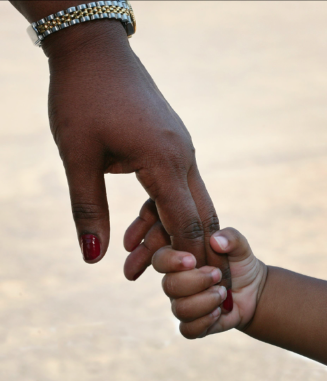 The stigma around ‘mail order brides’ is only one challenge faced by the foreign wives of lower-income men in Singapore (‘Curb stigma against foreign brides’;
The stigma around ‘mail order brides’ is only one challenge faced by the foreign wives of lower-income men in Singapore (‘Curb stigma against foreign brides’; 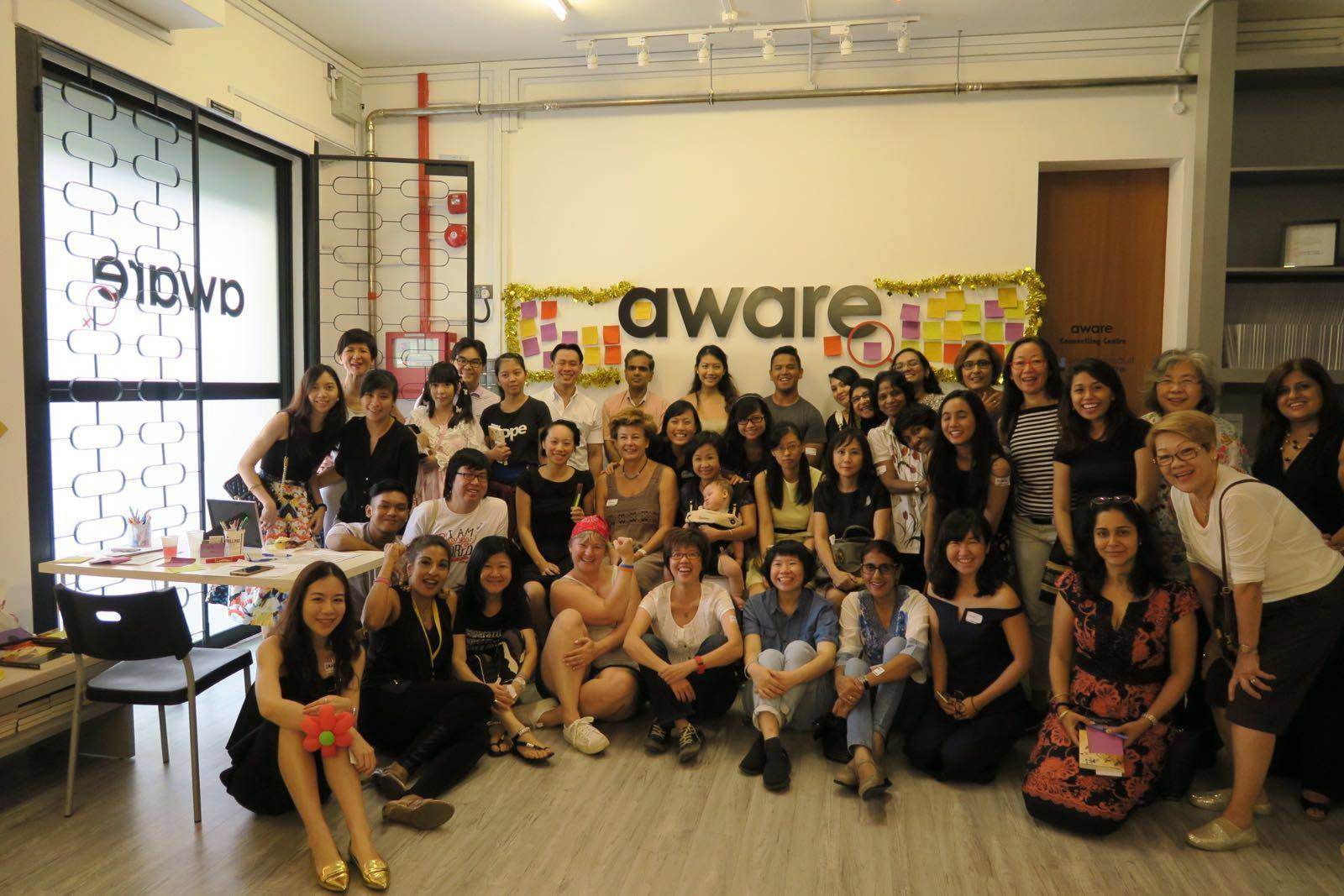 Are you a new member, volunteer or donor looking to learn more about AWARE? Maybe you’re passionate about women’s issues and want to contribute to the cause of gender equality in Singapore?
Are you a new member, volunteer or donor looking to learn more about AWARE? Maybe you’re passionate about women’s issues and want to contribute to the cause of gender equality in Singapore? The popular AWARE Alamak! Awards are back!
The popular AWARE Alamak! Awards are back! In April, a transgender man was
In April, a transgender man was 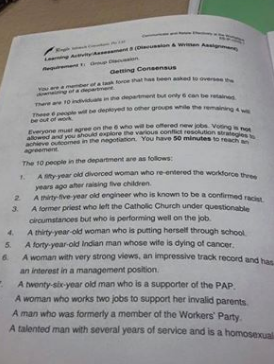
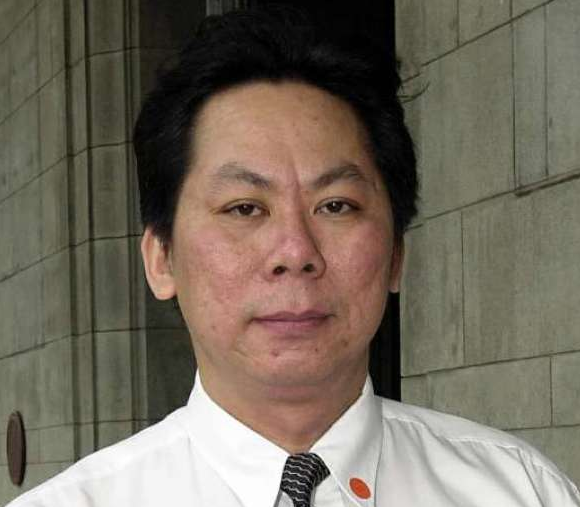
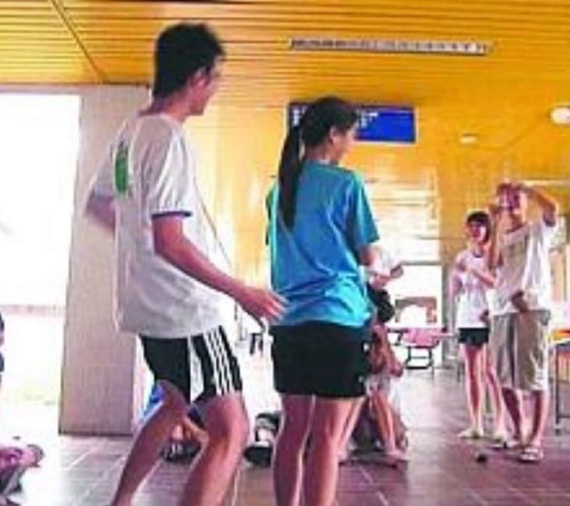
 AWARE would like to express our support of the general intention and principle behind the Administration of Justice (Protection) Bill. However, we have some concerns about the Bill’s potential negative impact on civil society and free speech.
AWARE would like to express our support of the general intention and principle behind the Administration of Justice (Protection) Bill. However, we have some concerns about the Bill’s potential negative impact on civil society and free speech.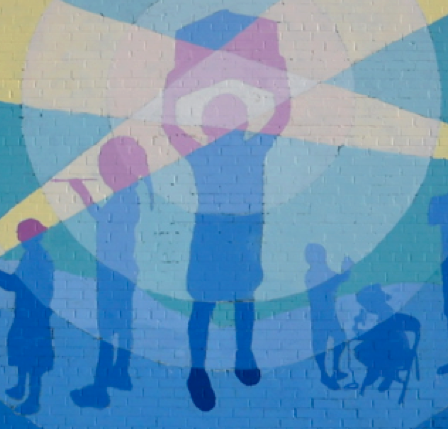 We Can! Singapore
We Can! Singapore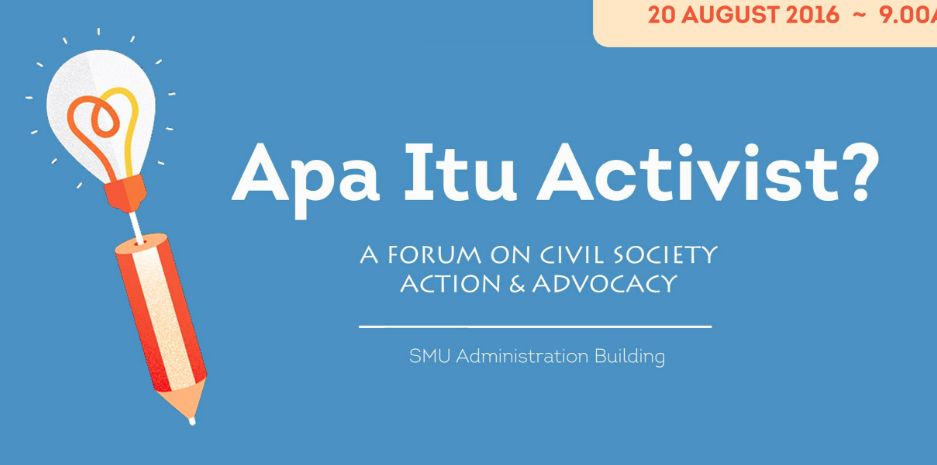 Apa Itu Activist? A Forum on Civil Society Action and Advocacy is back this August! If you’re looking to create social change in Singapore, this is your chance to equip yourself with ideas, partners and tools!
Apa Itu Activist? A Forum on Civil Society Action and Advocacy is back this August! If you’re looking to create social change in Singapore, this is your chance to equip yourself with ideas, partners and tools! This is a members’ only event. If you are not an AWARE member and would like to attend this screening, you can register to become an AWARE member
This is a members’ only event. If you are not an AWARE member and would like to attend this screening, you can register to become an AWARE member